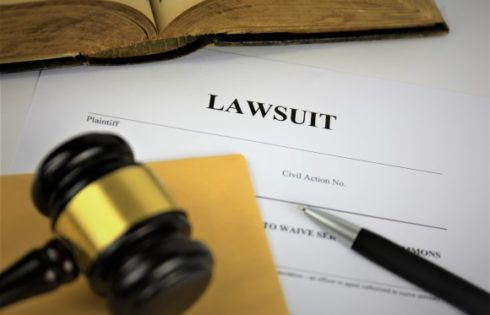
Documents show it says one thing, does another
Here’s an oddity: a student newspaper exposing its university’s broken promises to students accused of sexual misconduct.
The Stanford Daily has a 4,937-word feature on how Stanford University has “publicly misrepresented aspects of its own Title IX practices,” which give students greater protections in writing they they are given in practice.
The paper reviewed correspondence between Title IX staff and a lawyer for accused students, Bob Ottilie. It showed the university stopped parties in two proceedings from “gathering their own witness statements,” and in “at least” one case, didn’t let parties review “substantial information” that was redacted before a hearing.
“Both of these practices run contrary to Stanford’s public statements regarding the rights of students involved in Title IX cases,” the Daily says.
The documents contradict the statements of Stanford spokespeople going back to spring 2017, who insist the university only “discourages” students from getting their own witness statements.
One such incident: Title IX staff refused to interview a psychologist who treated one of Ottilie’s clients “contemporaneous to the alleged incident,” and “would have supported the male student’s claims” that the female accuser actually sexually assaulted him. His client wasn’t allowed to do the interview himself.
“Documentation supported” Ottilie’s claims that the university refused to justify why it redacted “extensive” portions of his cases, or let him see the unredacted evidence – short of “personal details like phone numbers or social security numbers” – before it goes to a hearing panel, according to the Daily.
MORE: Stanford investigated graduate based on 8-year-old allegations
It’s not just accused students who have been told one thing and treated another way. The Department of Education’s three-year investigation of Stanford’s Title IX practices revealed “seeming inconsistencies” in evidence and redaction procedures as applied to a complainant, “Student C.”
The unidentified student, who talked to the Daily on the condition of anonymity, said the student she accused, a resident assistant, was allowed to submit “positive character evidence” to rebut her claims, but the hearing panel wasn’t given her claims themselves.
Her unredacted sexual history was deemed relevant in the accused student’s statement but “prejudicial” in witness statements, and she wasn’t “allowed to be present” when the Title IX investigator “relayed” her arguments to panel members, the Daily reports, citing her emails with an administrator.
Student C disputed that the panel should be allowed to hear that she had “a history of accusing Resident Assistants of sexual assault” before she could challenge the claim. Stanford told the Daily it has since changed the Title IX system so panelists aren’t asked to “unsee” information that is later excluded.
The Daily report offers more on the concerns of Ottilie and Student C, including Stanford’s refusal to record interviews and the new, less specific “notice of concern” given to accused students:
[Ottilie] said that one of his clients became aware — upon reading his hearing file — that the Title IX Office was looking into allegations it hadn’t listed in the original notice of concern.
“The student said, ‘Now that I know what you were concocting with those weird questions I want to give you all this stuff,’ and [the Title IX Office] said, ‘No … just wait and do it with the 1,500-word letter’” [that Stanford lets students submit in response to the hearing file] Ottilie said. “In real court, we might come up with 10 witnesses of our own.”
MORE: Stanford muzzled accused student, tampered with his statement
MORE: Stanford under fire for requiring unanimity to judge student rapist
IMAGE: Albina Glisic/Shutterstock
Like The College Fix on Facebook / Follow us on Twitter






Please join the conversation about our stories on Facebook, Twitter, Instagram, Reddit, MeWe, Rumble, Gab, Minds and Gettr.